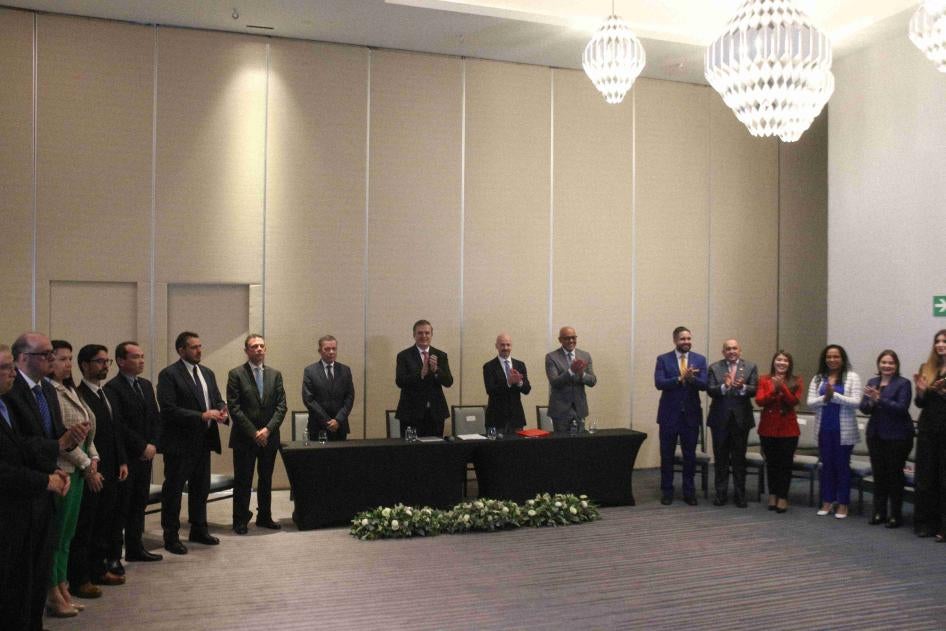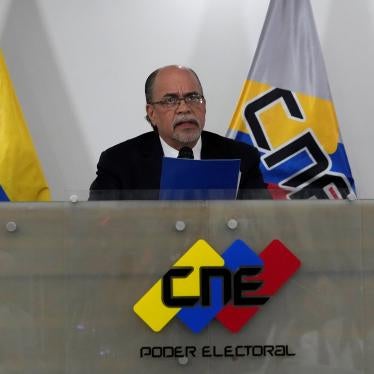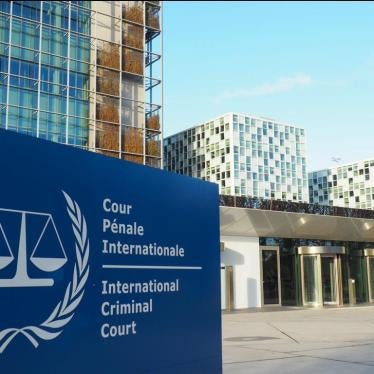(New York) – Delays in establishing a UN-administered aid fund for Venezuela are exacerbating the humanitarian emergency there, Human Rights Watch said today.
On November 26, 2022, after months of stalled negotiations, representatives of the government of Nicolas Maduro and the opposition signed an agreement to increase humanitarian aid for the Venezuelan people. The fund, which would be established with government assets that have been frozen in other countries, has yet to be established, however.
“The Maduro government, the opposition, the United Nations, and the Biden administration need to act swiftly and transparently to ensure aid for Venezuelans,” said Juanita Goebertus, Americas director at Human Rights Watch. “The millions of Venezuelans with dire humanitarian needs have no time to lose.”
HumVenezuela, an independent platform by civil society organizations monitoring the humanitarian emergency, estimates that, out of a total Venezuelan population of 28.7 million people, 19 million – 66 percent – need assistance and 18.7 million people – 65 percent – have “irreversibly lost or exhausted their means of livelihood,” driving them into poverty.
In March and June 2023, Human Rights Watch interviewed dozens of Venezuelans who crossed or attempted to cross the Darién Gap, a jungle in the Colombian-Panama border, in most cases with the intention of heading to the United States. Some said they were fleeing persecution, including from security forces and gangs. Many others said they fled harsh economic conditions in their country and the difficulty in the context of the country’s humanitarian emergency of getting medicine, food, and other essential goods and services.
More than 7.3 million Venezuelans have left their country since 2014, about 80 percent of them to other Latin American countries. The number of Venezuelans crossing the Darien gap have skyrocketed, with over 250,000 Venezuelans having crossed the jungle since the beginning of 2022.
According to HumVenezuela, as of March 2022, 92.9 percent of households in Venezuela had one family member who had left the country. Over 55 percent of the households are estimated to spend all their income in food, and 22.7 percent of households do not have sufficient income to buy food, according to the platform. Venezuela has the highest prevalence of undernourishment in South America, according to the UN Regional Overview of Food Security and Nutrition.
As of March 2022, 8.4 million “gravely ill people” in Venezuela faced obstacles in obtaining medical services. The lack of electricity and running water affected hospital services, based on the National Survey of Hospitals, carried out by an organization of healthcare workers. While drug shortages have decreased since 2018, more than 9 million people cannot afford medicines they need, the platform concluded.
Under the agreement reached in November, the reserves of the government abroad will be invested in a humanitarian fund devoted to supporting needs for health care, food, education, and electricity. The trust fund will be designed, established, and administered by the UN, and will be monitored by a commission with membership from the government and the opposition.
Delays appear to result from the Maduro government’s lack of action to identify frozen assets abroad, delays by foreign governments and banks in releasing those assets, and slow action by the UN to create the fund. It was only in May, six months after the agreement, that the Biden administration told the UN it would shield the fund from creditors that might attempt to seize money to repay Venezuelan debts.
The Maduro government has stalled further negotiations with the opposition, contending that other stakeholders have failed to carry out their part of the agreement. The agreement indicates, however, that the negotiations agenda “cannot be conditioned, suspended, or delayed by any aspect arising from [its] execution.”
The Maduro government, the opposition, and the United Nations should take concrete action to carry out the agreement. They should ensure that the funds reach everyone in need in a way that is apolitical and complies with the basic humanitarian principle of neutrality, Human Rights Watch said. Foreign governments that have Venezuelan assets in their banks should promptly act to protect these assets and transfer them as soon as possible to the humanitarian fund.
“There is little hope that Venezuelans’ urgent human rights needs can be met unless negotiations between the government and the opposition move forward,” Goebertus said. “Carrying out the humanitarian agreement is a basic first step.









